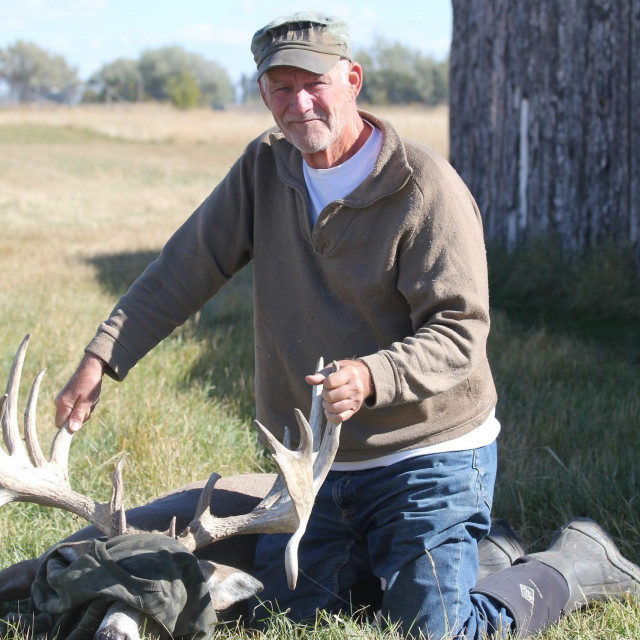Montana Sheep Cloning: Jack Schubarth's Illegal Scheme & Sentencing - News
Could an 81-year-old Montana rancher truly orchestrate a scheme that spanned continents, involved the illegal importation of endangered species, and culminated in the creation of hybrid animals for profit? The case of Arthur "Jack" Schubarth reveals a complex web of deceit, ambition, and a blatant disregard for wildlife laws, leaving a lasting impact on the conservation efforts of the United States and beyond.
The scene unfolded in the District Court for the District of Montana, where the details of Schubarth's illicit activities were laid bare. Court documents painted a picture of a man who, for nearly a decade, engaged in a clandestine operation to manipulate the genetic makeup of wildlife. Schubarth, along with unnamed coconspirators, employed a variety of techniques, including the use of semen from a specific individual, referred to as "MMK," to artificially inseminate various species of ewes. The goal was clear: to create hybrid animals, a practice strictly prohibited under Montana law. Schubarth's actions extended far beyond the state's borders, implicating him in the illegal acquisition and trafficking of genetic material from endangered species.
Arthur "Jack" Schubarth's actions, as detailed in court documents, involved the illegal acquisition of parts from Marco Polo argali sheep, one of the world's largest sheep species, hunted in Kyrgyzstan. These body parts, including tissue and testicles, were then imported into the United States. Schubarth's motivations were primarily driven by the lucrative market of captive trophy hunting. The hybrids created were intended for sale to hunting operations in states like Texas and Minnesota, where hunters would pay exorbitant fees to kill the artificially created animals. The scheme's financial incentives were substantial, fueling Schubarth's continued involvement and disregard for the consequences of his actions.
The sentencing in Great Falls on Monday, September 30, 2024, brought a semblance of closure to the case. Schubarth, 81, faced two felony wildlife crime charges, including the illegal sheep cloning scheme and wildlife trafficking. The judge, Brian Morris, expressed his struggle in determining an appropriate sentence, balancing Schubarth's age and lack of a prior criminal record with the gravity of his offenses. The court aimed to send a clear message about the importance of adhering to wildlife laws and to deter others from engaging in similar actions that threatened to alter the genetic makeup of creatures on earth.
Schubarth's scheme was not a one-man operation; it involved multiple individuals and extended across international borders. Schubarth admitted to conspiring to violate and substantively violating the Lacey Act. The Lacey Act is a U.S. law that prohibits the trafficking of wildlife that has been illegally taken, possessed, transported, or sold. This act makes it a federal offense to import or export any wildlife in violation of U.S. or foreign law, which is exactly what Schubarth was found guilty of. Schubarth's actions had the potential to disrupt the natural ecosystem and undermine conservation efforts.
The illegal activity began in 2012. Schubarth paid for his son to hunt one of the worlds largest sheep species, the Marco Polo argali, in Kyrgyzstan. He then illegally acquired genetic material from the hunted sheep and brought it into the U.S. From 2013 to 2021, Schubarth illegally imported genetic material from the Marco Polo argali sheep in Asia. He aimed to breed a larger, more valuable hybrid. This was done to create hybrid sheep for captive trophy hunting in Texas and Minnesota.
The court's decision was a reminder of the importance of enforcing wildlife protection laws and holding those who violate them accountable. While prosecutors did not seek prison time, the six-month sentence and the stigma of a felony conviction underscored the seriousness of Schubarth's crimes. The case of Arthur "Jack" Schubarth serves as a cautionary tale, highlighting the need for greater vigilance and stricter regulations to protect wildlife and prevent similar illegal activities in the future.
The sentence handed down to Arthur "Jack" Schubarth was six months in federal prison. The judge's struggle to determine the appropriate sentence underscored the complicated nature of the case. The court record reflects that the judge considered Schubarths age and lack of a criminal record, but at the same time, the goal was to discourage any other attempt to violate wildlife laws.
The illegal activity involved the cloning of endangered mountain sheep embryos. It also involved the illegal importation of body parts of Marco Polo argali sheep from Kyrgyzstan. Schubarth then sent the genetic material to a lab to create cloned embryos. This whole operation of Schubarth was against wildlife laws, violating the Lacey Act, which protects wildlife and plants from illegal activities.
Schubarth's actions sent a clear message about the importance of enforcing wildlife protection laws and holding those who violate them accountable. The case served as a cautionary tale and highlighted the need for greater vigilance and stricter regulations to prevent similar illegal activities in the future. His actions have the potential to disrupt the natural ecosystem and undermine conservation efforts.
| Attribute | Details |
|---|---|
| Full Name | Arthur "Jack" Schubarth |
| Age at Sentencing | 81 |
| Location | Vaughn, Montana |
| Criminal Charges | Felony charges of wildlife trafficking and conspiracy to traffic wildlife |
| Illegal Activities | Illegally importing parts from Marco Polo argali sheep, cloning sheep, and breeding hybrid species for captive trophy hunting |
| Sentence | 6 months in federal prison |
| Key Dates | Scheme began in 2012, sentenced September 30, 2024 |
| Victims | Endangered mountain sheep |
| Crimes Committed | Violating the Lacey Act, creating and selling hybrid animals |
| Motive | Financial gain through captive trophy hunting |
| Legal Proceedings | District Court for the District of Montana |
| Judge | Judge Brian Morris |
| Reference Website | U.S. Department of Justice |



Detail Author:
- Name : Cayla Abshire
- Username : fpouros
- Email : elegros@schumm.biz
- Birthdate : 1976-06-09
- Address : 9362 Swaniawski Coves Arleneshire, VT 85601
- Phone : +1-762-451-4829
- Company : Batz LLC
- Job : Tire Changer
- Bio : Suscipit reiciendis aliquam aut placeat cupiditate. Illo officiis repellat molestiae ipsam ratione eius aliquid voluptates. Magni expedita et aut eius voluptas ea.
Socials
linkedin:
- url : https://linkedin.com/in/evalyn_cassin
- username : evalyn_cassin
- bio : Et sed delectus ducimus neque quasi error quo.
- followers : 3443
- following : 695
tiktok:
- url : https://tiktok.com/@evalyncassin
- username : evalyncassin
- bio : Libero fuga quia temporibus enim illo. Explicabo voluptate qui perspiciatis.
- followers : 3420
- following : 2603
instagram:
- url : https://instagram.com/evalyn_cassin
- username : evalyn_cassin
- bio : Deserunt aspernatur numquam consequatur a vel in. Beatae voluptas dolorem id quibusdam dolorem aut.
- followers : 1044
- following : 3000